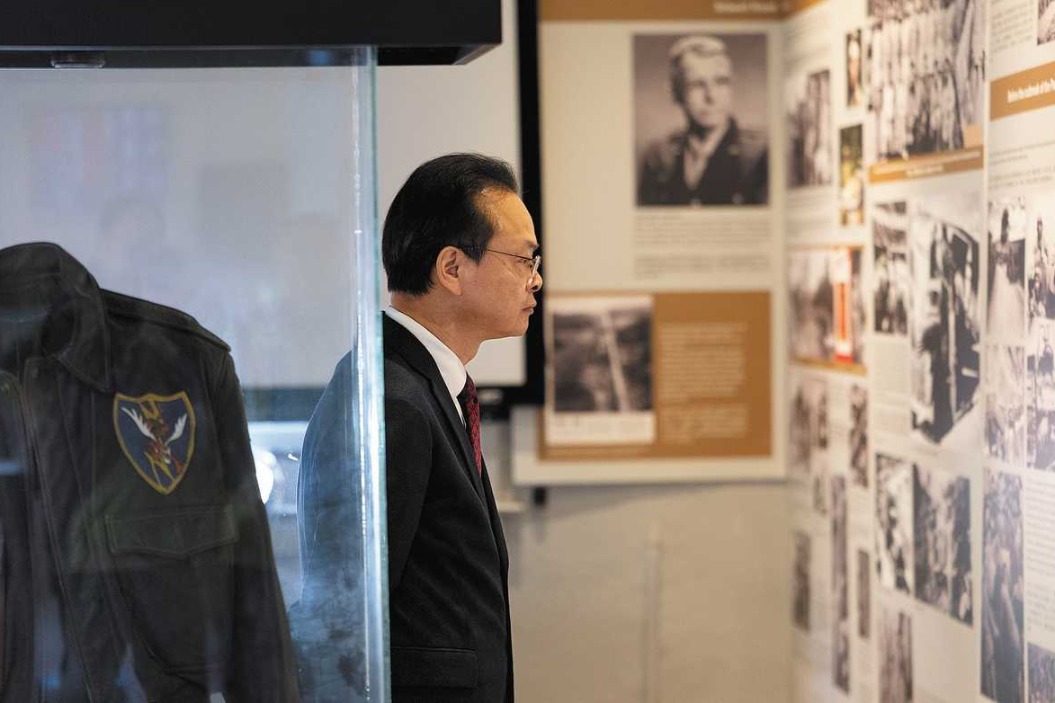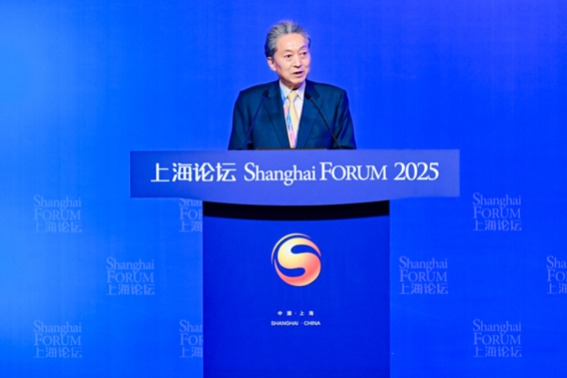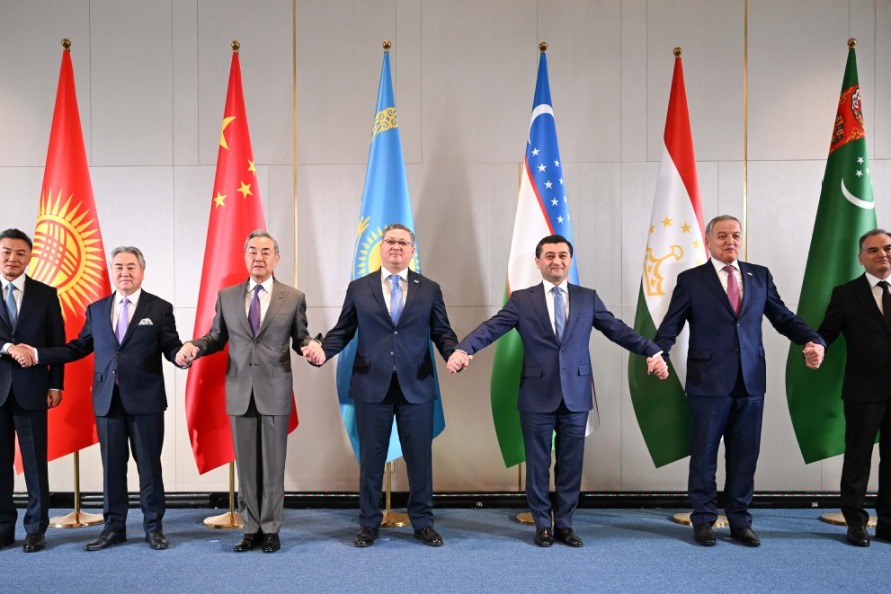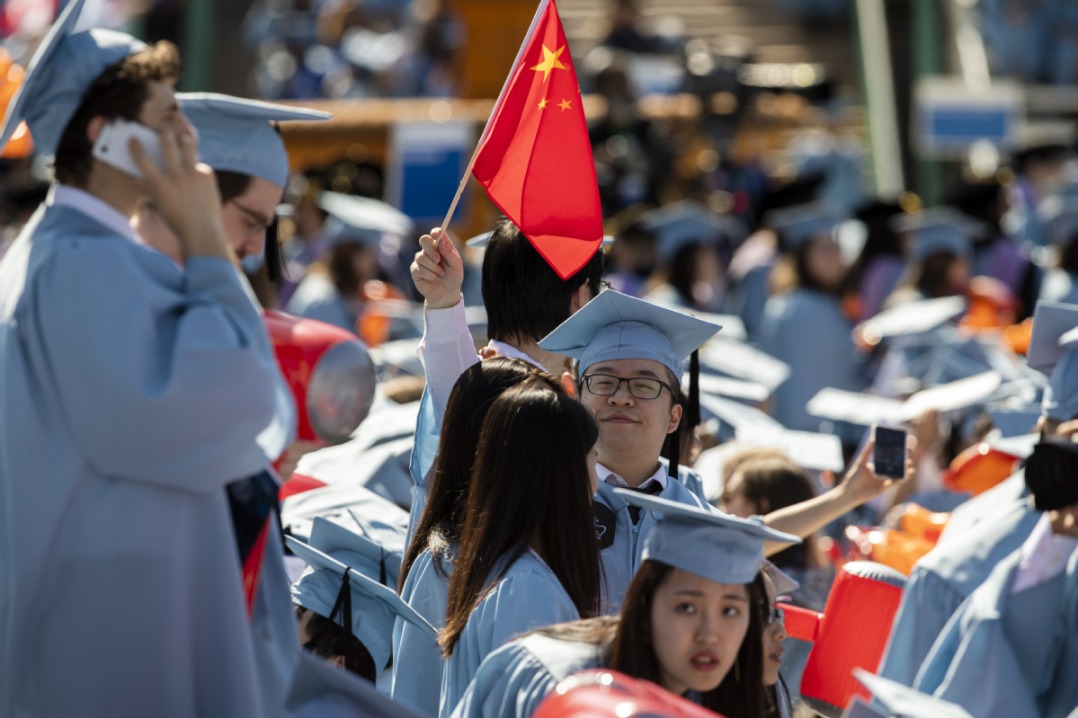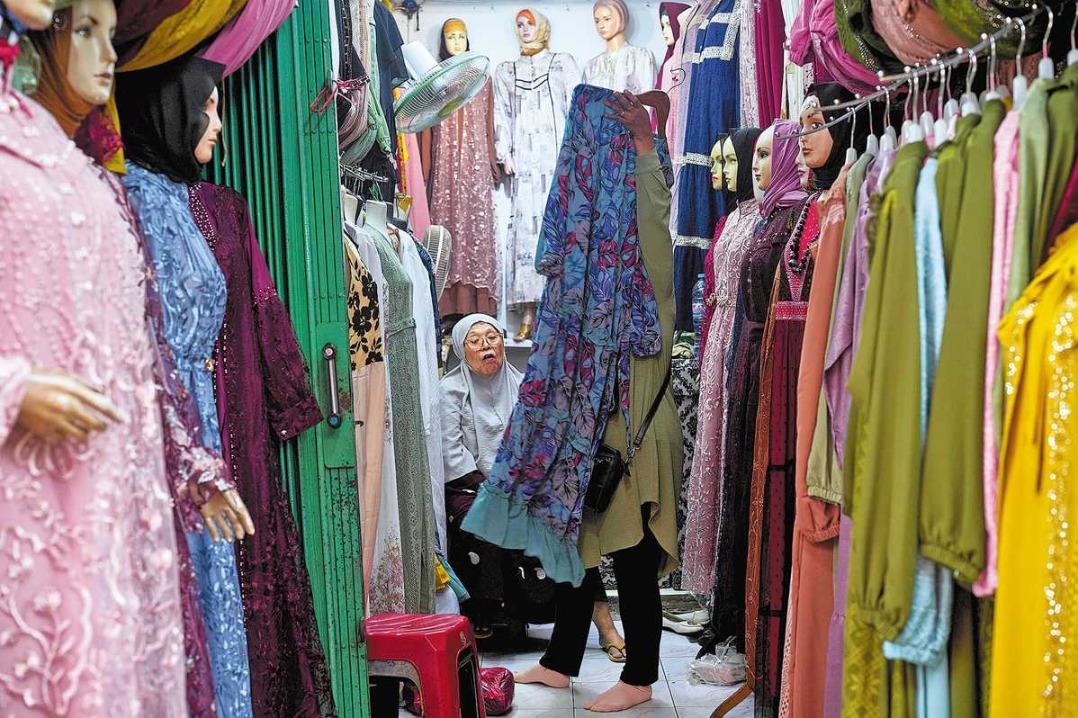Ex-Japan PM urges tech collaboration with China

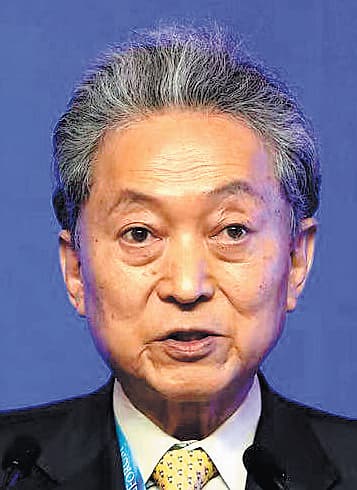
Japan and China can leverage their respective strengths in a macro-micro partnership, particularly in the realms of artificial intelligence and robotics, to achieve mutual benefits and success, former Japanese prime minister Yukio Hatoyama said on Friday in Shanghai.
Japan's expertise in details and basic materials, combined with China's strong organizational capabilities and impressive industrial achievements in recent years, presents a major opportunity for collaboration to achieve win-win results, Hatoyama said in an exclusive interview with China Daily during the Shanghai Forum 2025.
A longtime advocate of stronger Sino-Japanese ties, Hatoyama praised China's rapid advances in AI and robotics, saying the country has reached a world-leading level.
"I heard that humanoid robots participated in a marathon race in China recently. I believe such a situation would not be possible in Japan in the short term," he said.
"Such results were due to China's long-term and substantial support for science and technology development. China's scientific and technological level is currently at the forefront worldwide, and I really pay tribute to that," he added.
Hatoyama recalled his early interest in studying AI-related courses during his university years in Japan about 55 years ago, when the country was a global leader in robotics engineering. However, he acknowledged that Japan did not achieve significant breakthroughs in the field, while China has made remarkable progress in recent years.
He cited the emergence of innovations such as DeepSeek in China, highlighting its exceptional performance and cost-effectiveness compared with some overseas counterparts.
"Japan excels in attention to details and fundamental materials, but there is a lack of organizational capabilities in the country's overall industrial structure," he said. "So I suggest Japan and China collaborate while playing up their respective advantages."
Recent moves by the United States have provided a window of opportunity for Japan to reclaim its position as the "Japan of Asia", Hatoyama said.
"If this is the case, we are now ushering in such a window of opportunity for China and Japan to strengthen cooperation and exchanges, including in technological fields."
Japan's main national policy and strategy has long been to follow the US, he said. However, recent US actions have prompted growing doubts within Japan about such policy direction.
"Therefore, I think it offers a window of opportunity now, and Japan should reconsider its status and role as 'Japan of Asia'. I believe that Japan must work in this direction."
In addition, he emphasized the importance of adhering to established principles in China-Japan relations, referencing agreements reached in the 1970s. He underscored the need for both countries to follow those guidelines to foster continual improvement and development in the bilateral relationship.
Regarding Taiwan, Hatoyama said the Chinese government holds that Taiwan is an inalienable part of China.
"At that time, the Japanese government expressed understanding and respect for this position, and a consensus was reached," he said, adding that Japan should continue to abide by this consensus and properly handle the Taiwan question "as an internal affair of China".
'Age of innovation'
The three-day Shanghai Forum 2025, themed "Age of innovation: Technology, development and governance", was hosted by Fudan University, Shanghai, and the Chey Institute for Advanced Studies, Seoul. The event brought together more than 500 guests and representatives from think tanks, universities, governments, businesses, and media organizations across more than 50 countries and regions.
Hatoyama said the forum's theme is quite illuminating. "When we try to understand today's world overflowing with uncertainties, keywords such as technology, development and governance are the signposts we rely on."
Commenting on current global dynamics, Hatoyama said the US is trying to slow China's catch-up by suppressing its advanced semiconductor industry. However, he added, such efforts would ultimately fail in the long run.
Competition between the US and China in fields such as semiconductors and AI is likely to continue for decades, Hatoyama said, warning that a division of the world into two opposing camps in these areas would be a nightmare.
"I propose the establishment of a mechanism to regulate competition between China and the US in fields such as information technology and AI, and advocate for collaborative efforts involving countries like Japan, South Korea, and those in Europe to facilitate agreements between the two countries."
The US is increasingly moving toward a self-centered mindset these days, shaking the development of the international order, he said. "Now is the time to push for some changes."
zhouwenting@chinadaily.com.cn
















